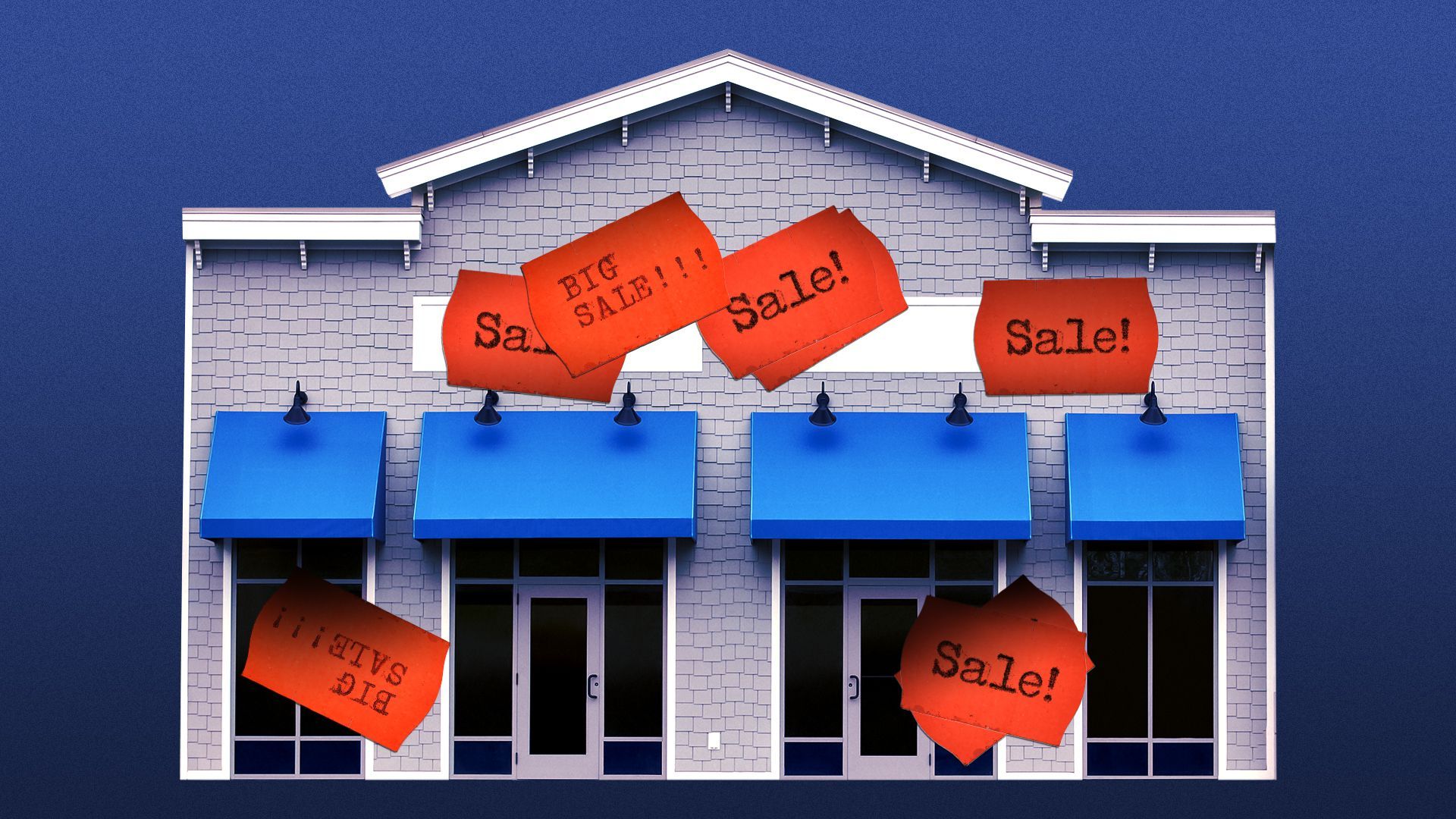The classic retail LBO starting to look vintage
Add Axios as your preferred source to
see more of our stories on Google.

Illustration: Annelise Capossela/Axios
Before the turbulence of the last decade, retail LBOs followed a clear model. But with rich valuations and a low appetite for credit risk, retail has seen a dearth of traditional leveraged buyouts, even as the industry slowly emerges from the pandemic.
Why it matters: Private equity firms with dedicated retail practices will have to be more creative about how they invest in the sector going forward.
- The old model of lever up, cut costs, monetize real estate, use cash flow to service debt, extract dividends, repeat as necessary isn't flying.
- Retail focused firms have started taking new angles to remain in the retail market in the face of market challenges.
By the numbers: After spiking to more than $6 billion in the first quarter of this year, North American retail buyout volume sunk to less than $1 billion in the third quarter, Mergermarket data show.
Between the lines: Industry sources said credit markets are only willing to lever traditional retailers up to 2.5 X EBITDA currently, a decrease from up to 4.5 X in the first half of this year when buyouts of both Michaels and At Home group were transacted.
- Lenders are increasingly risk averse when it comes to retail because they consider operational costs such as the amount of rent owed, in turn tied to lease agreements, as a form of debt.
- Some apparel retailers, however, have been restructuring their leases so that the terms are three years or less to address the issue and give them greater flexibility on rationalizing their store fleets going forward.
Investments in 2021 by Sycamore Partners, a private equity firm historically dedicated to retail LBOs, consisted of providing debt financing to apparel retailer Express, purchasing cruise ship assets from Royal Caribbean Cruises in an all-cash deal, acquiring Ste. Michelle Wine Estates and adding a bolt on to portfolio company Pure Fishing, for example.
What they're saying: "I think there are three types of retail investments that will continue to attract investor attention: site-based services, experiential concepts that can drive traffic and brand banner stores that serve as customer acquisition channels in a more diversified channel landscape," said Ryan Cotton, a managing director and global head of consumer at Bain Capital Private Equity.
Join the waitlist for Axios Pro, coming in early 2022.
